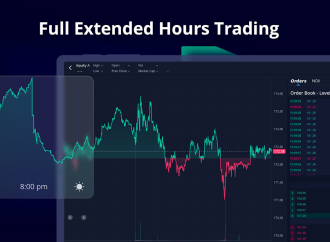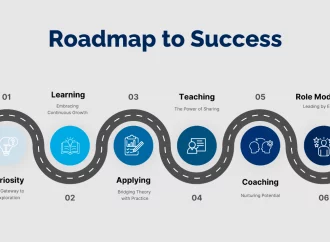Introduction In today’s digital age, Online Advertising in Small Businesses has become indispensable for small businesses aiming to thrive in competitive markets. Leveraging the power of the internet to reach potential customers offers unparalleled opportunities for growth and success. Understanding the intricacies of online advertising strategies can make a significant difference in achieving marketing objectives
Introduction
In today’s digital age, Online Advertising in Small Businesses has become indispensable for small businesses aiming to thrive in competitive markets. Leveraging the power of the internet to reach potential customers offers unparalleled opportunities for growth and success. Understanding the intricacies of online advertising strategies can make a significant difference in achieving marketing objectives and maximizing return on investment (ROI).
What is Online Advertising?
Online Advertising in Small Businesses refers to the use of internet-based platforms to promote products, services, or brands to a targeted audience. It encompasses various channels such as search engines, social media, websites, and mobile apps.
Importance of Online Advertising in Small Businesses

Image by: Yandex
Online Advertising in Small Businesses with limited budgets and resources, online advertising offers cost-effective ways to reach a vast audience and compete with larger competitors. It allows businesses to target specific demographics, track performance metrics, and adjust strategies in real-time, enabling efficient allocation of marketing resources. Small businesses with limited budgets can leverage cost-effective advertising methods to maximize their marketing efforts. Explore options like social media advertising, content marketing, influencer partnerships, and email campaigns to achieve optimal results within budget constraints.
Understanding the Target Audience
Online advertising campaign, it’s crucial to identify the target demographic(s) most likely to be interested in the products or services offered by the business. This involves analyzing factors such as age, gender, location, income level, interests, and purchasing behavior.
Analyzing User Behavior
Understanding how users interact with online platforms and consume content is essential for tailoring advertising strategies effectively. Analyzing user behavior helps in identifying trends, preferences, and pain points, allowing businesses to create relevant and engaging ad campaigns.
Creating Buyer Personas
Developing detailed buyer personas based on market research and customer insights enables businesses to personalize their marketing messages and offerings. By understanding the needs, motivations, and challenges of their target audience, businesses can craft more compelling ad content that resonates with potential customers.
Crafting Compelling Ad Copy
The headline is the first impression of an ad and plays a crucial role in capturing the audience’s attention. Crafting catchy and relevant headlines that highlight the unique selling proposition (USP) or value proposition of the product/service can significantly increase click-through rates (CTR) and engagement.
Crafting Persuasive Ad Content
The body copy of an ad should focus on communicating the benefits and features of the product/service in a clear and persuasive manner. Highlighting key selling points, addressing customer pain points, and providing solutions can compel users to take the desired action, whether it’s making a purchase, signing up for a newsletter, or visiting a website.
Utilizing Calls to Action
A strong call to action (CTA) prompts users to take immediate action, guiding them towards the desired conversion goal. Whether it’s Shop Now, Learn More, or Sign Up Today, the CTA should be concise, compelling, and prominently displayed to encourage user engagement.
Leveraging Social Media Platforms

Image by: Yandex
Not all social media platforms are created equal, and it’s essential to choose the ones that align with the target audience and business objectives. Whether it’s Facebook, Instagram, Twitter, LinkedIn, or Pinterest, each platform offers unique opportunities for reaching and engaging with potential customers.
Engaging with Followers
Building a strong presence on social media requires more than just posting content it involves actively engaging with followers, responding to comments, addressing inquiries, and fostering meaningful interactions. Building relationships with followers can foster brand loyalty and advocacy, driving long-term business success.
Utilizing Paid Ads on Social Media
Social media advertising offers highly targeted options for reaching specific audience segments based on demographics, interests, and behaviors. Whether it’s sponsored posts, carousel ads, or video ads, investing in paid social media advertising can amplify brand visibility and generate leads and conversions.
Implementing SEO Strategies
Keyword research is the foundation of effective SEO strategies, helping businesses identify the terms and phrases potential customers use when searching for products or services online. By targeting relevant keywords with high search volume and low competition, businesses can improve their organic search rankings and increase website traffic.
On-Page Optimization
Optimizing website content, meta tags, URLs, and images for target keywords improves search engine visibility and relevance. Incorporating keywords naturally throughout the content, optimizing meta descriptions, and using descriptive alt tags for images can enhance the overall user experience and boost search engine rankings.
Building Quality Backlinks
Earning quality backlinks from reputable websites is essential for building domain authority and credibility in the eyes of search engines. Implementing link-building strategies such as guest blogging, influencer outreach, and content syndication can help businesses acquire relevant backlinks and improve their search rankings over time.
Utilizing Google Ads

Image by: Yandex
Google Ads, formerly known as Google AdWords, is a powerful advertising platform that allows businesses to display ads on Google’s search engine results pages (SERPs) and across the Google Display Network. Setting up targeted campaigns with relevant keywords, ad copy, and bidding strategies is essential for maximizing ad performance and ROI.
Optimizing Ad Performance
Monitoring key performance metrics such as click-through rate (CTR), conversion rate, and cost per acquisition (CPA) is crucial for optimizing Google Ads campaigns. Continuously testing different ad variations, keywords, and targeting options allows businesses to identify what works best and refine their strategies accordingly.
Monitoring and Adjusting Strategies
Regularly monitoring campaign performance and making data-driven adjustments is essential for staying competitive in the ever-evolving digital advertising landscape. Analyzing campaign metrics, testing new tactics, and adapting to changes in consumer behavior and market trends can help businesses maintain a competitive edge and achieve long
Conclusion
Online advertising strategies are essential for small businesses looking to compete and thrive in today’s digital landscape. By understanding their target audience, crafting compelling ad copy and leveraging social media platforms, implementing SEO strategies.
______________________________________________________________________
Q: What are some effective strategies for online advertising in small businesses?
A: Effective strategies for online advertising in small businesses include targeting specific demographics, crafting compelling ad copy, leveraging social media platforms, implementing SEO strategies, utilizing Google Ads, and continuously analyzing and improving campaign performance.
Q: How can small businesses identify their target audience?
A: Small businesses can identify their target audience by analyzing factors such as age, gender, location, income level, interests, and purchasing behavior. Conducting market research and creating buyer personas can help businesses better understand their target demographic.
Q: What role does social media play in online advertising for small businesses?
A: Social media platforms offer small businesses opportunities to reach and engage with potential customers through organic content and paid advertising. By choosing the right social media channels, engaging with followers, and utilizing paid ads effectively, businesses can increase brand visibility and drive conversions.
Q: Why is keyword research important for SEO strategies?
A: Keyword research is essential for SEO strategies as it helps businesses identify the terms and phrases potential customers use when searching for products or services online. Targeting relevant keywords with high search volume and low competition can improve organic search rankings and increase website traffic.
Q: How can small businesses optimize their Google Ads campaigns for better performance?
A: Small businesses can optimize their Google Ads campaigns by setting up targeted campaigns with relevant keywords, ad copy, and bidding strategies. Monitoring key performance metrics such as click-through rate (CTR), conversion rate, and cost per acquisition (CPA) and making data-driven adjustments is crucial for improving ad performance.




















